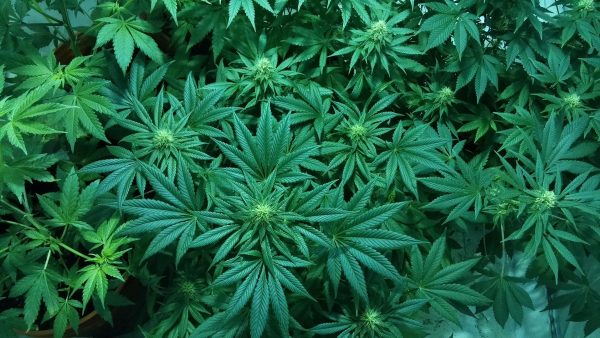Alabama judge puts a temporary hold on medical marijuana companies
MONTGOMERY, Ala. (AP) — A judge has temporarily blocked Alabama from issuing licenses to medical marijuana facilities amid an ongoing legal battle over how the state selected the winning companies.
Montgomery Circuit Judge James Anderson issued a temporary restraining order late Wednesday to stop the Alabama Medical Cannabis Commission from issuing licenses for “integrated” facilities that grow, transport and sell medical marijuana. The coveted licenses will be on hold while he hears a challenge to the selection process.
Companies that were not selected to receive one of the five available integrated licenses have challenged the selection process, saying the commission violated its own rules when selecting winners. The commission has attempted to award the licenses three times and rescinded the first two selections during the legal dispute.
Anderson said he is sympathetic to concerns about delaying the availability of medical marijuana but said a pause on the licenses is merited.
“While the court understands those parties’ frustrations, the court also notes that all three rounds of awards have been challenged as legally infirm: the first two rounds of awards were abandoned by action of the Commission itself, and now there is a serious question as to whether the third round is also invalid,” Anderson wrote.
The restraining order is the latest development in a legal battle that has plagued the start of Alabama’s medical marijuana program. Alabama lawmakers voted to allow medical marijuana in the state in 2021. Commission officials are aiming to make the products available in 2024 after a series of delays.
“We remain determined and hopeful that the availability of medical cannabis products, recommended by certified physicians to qualified Alabama patients, is right around the corner,” Alabama Medical Cannabis Commission Director John McMillan said in a statement.
The Wednesday order only affects the licenses for the facilities that perform multiple functions from “seed to sale.” The judge last week put a hold on licenses for dispensaries in order to hear a similar challenge. The commission has issued licenses for growers, processors, transportation companies and laboratory testing.
McMillan said the delay on having any licensed dispensaries to sell medical marijuana products also delays the ability of Alabama doctors to get certified to recommend medical cannabis to patients. He said the Alabama Board of Medical Examiners requires the issuance of at least one cultivator, processor, secure transporter, and dispensary license before the board will issue medical cannabis certification permits to physicians.
“We remain hopeful that the Court will swiftly permit the issuance of all licenses awarded by the Commission,” McMillan said.
Reporters’ notebook: The Olympics closing ceremony is way more fun than you’d think
Olympics opening ceremonies tend to get more love than their closing counterparts. But a pair of NPR reporters who watched both in Italy left with a newfound appreciation for the latter.
Northeast readies for a major winter storm, with blizzard warnings in effect
New Jersey through Massachusetts could see 2 feet of snow. New York City's mayor said the city had not "seen a storm like this in a decade."
Mexican army kills leader of Jalisco New Generation Cartel, official says
The Mexican army killed the leader of the powerful Jalisco New Generation Cartel, Nemesio Rubén Oseguera Cervantes, "El Mencho," in an operation Sunday, a federal official said.
Ukraine’s combat amputees cling to hope as a weapon of war
Along with a growing number of war-wounded amputees, Mykhailo Varvarych and Iryna Botvynska are navigating an altered destiny after Varvarych lost both his legs during the Russian invasion.
University students hold new protests in Iran around memorials for those killed
Iran's state news agency said students protested at five universities in the capital, Tehran, and one in the city of Mashhad on Sunday.
Pakistan claims to have killed at least 70 militants in strikes along Afghan border
Pakistan's military killed at least 70 militants in strikes along the border with Afghanistan early Sunday, the deputy interior minister said.







